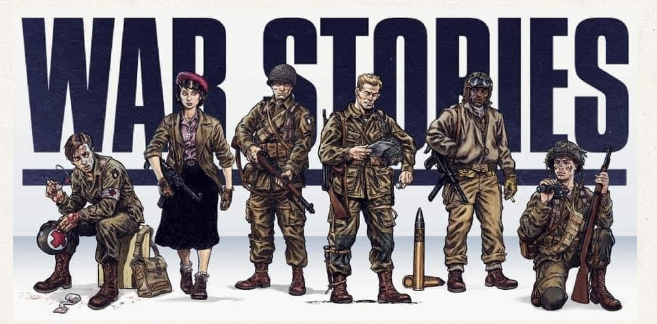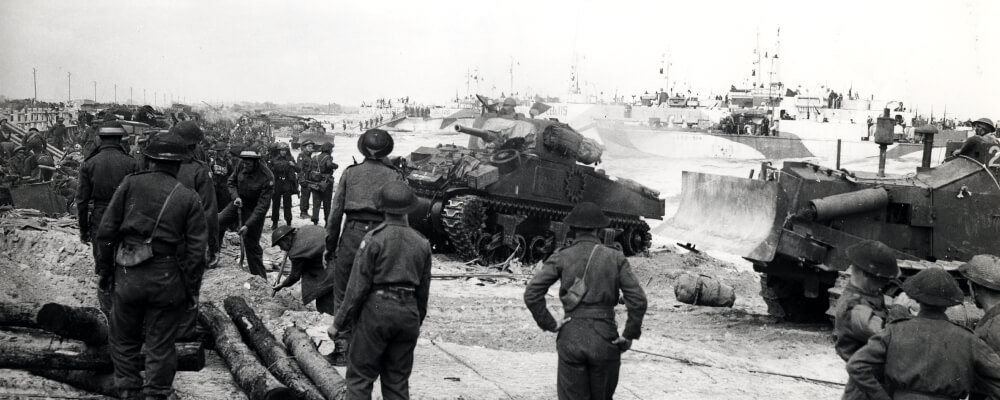Women at War: Examining the Role of Gender in Conflict Zones

Conflict zones across the globe are often portrayed as domains dominated by men, where the roles of women are sidelined or overlooked. However, the reality is far more nuanced, with women playing multifaceted roles that are pivotal to the dynamics of war and peace. Understanding the intricacies of gender dynamics in conflict zones is essential for comprehending the full spectrum of challenges and opportunities faced by communities affected by war. In this article, we delve into the role of women in conflict zones, examining their experiences, contributions, and the impact of gender dynamics on the trajectory of conflicts.
Much like how women navigate the complexities of conflict, the solar panel replacement in Hillsborough signifies a commitment to sustainability and adaptation, showcasing the strength and determination required to overcome adversities, whether on the battlefield or in environmental conservation efforts.
Historical Perspectives

Throughout history, women have been active participants in conflicts, albeit often in less visible or acknowledged capacities. From ancient civilizations to modern warfare, women have been involved in various roles, including combatants, caregivers, and agents of peace. In times of war, women have shouldered responsibilities on multiple fronts, serving as combatants, spies, nurses, and providers for their families. Despite their significant contributions, women’s roles in conflicts have frequently been marginalized or relegated to the sidelines, overshadowed by dominant narratives that emphasize male heroism and military prowess.
Loan servicing software reports provide valuable insights into financial trends and patterns, much like the in-depth analysis required to understand the multifaceted roles of women in war.
Contemporary Realities
In contemporary conflict zones, the roles and experiences of women continue to evolve in response to shifting geopolitical dynamics and socio-cultural factors. Women are not just passive victims of war; they are also active agents of change, resilience, and peacebuilding within their communities. In conflict-affected regions, women often bear the brunt of violence and displacement, yet they also demonstrate remarkable resilience and resourcefulness in navigating the challenges of war. Moreover, women have increasingly been at the forefront of grassroots movements advocating for peace, justice, and human rights, challenging traditional gender norms, and advocating for gender-sensitive approaches to conflict resolution and post-war reconstruction.
Challenges and Opportunities
Despite the crucial roles women play in conflict zones, they face numerous challenges and obstacles that hinder their full participation and empowerment. Gender-based violence, including sexual violence and exploitation, remains pervasive in many conflict-affected areas, posing significant threats to women’s safety, dignity, and well-being. Moreover, patriarchal structures and societal norms often limit women’s access to resources, decision-making processes, and opportunities for education and economic empowerment. However, amidst these challenges, there are also opportunities for positive change and progress. Increasing recognition of women’s agency and contributions in conflict resolution and peacebuilding efforts has led to the adoption of gender-sensitive policies and initiatives aimed at promoting women’s rights, participation, and leadership in peace processes.
Women at war often face unique challenges, including limited access to traditional notary services, making remote online notarization a crucial tool for empowerment, especially in legal proccesses.
Women as Peacebuilders
Women’s participation in peacebuilding processes is not just a matter of gender equality; it is also a strategic imperative for sustainable peace and security. Research has shown that peace agreements are more durable and inclusive when women are actively involved in their negotiation and implementation. Women bring unique perspectives, priorities, and skills to the table, often emphasizing community-based approaches, reconciliation, and social cohesion. By amplifying women’s voices and ensuring their meaningful participation in peacebuilding efforts, societies can foster greater inclusivity, resilience, and stability in the aftermath of conflicts. Empowering women as peacebuilders requires addressing structural inequalities, amplifying their voices, and providing them with the resources, opportunities, and support needed to contribute effectively to peace and security.
Women’s Economic Empowerment
One crucial aspect of women’s agency in conflict zones lies in their economic empowerment. Economic independence can significantly enhance women’s resilience and contribute to community stability in the face of conflict-related challenges. In many conflict-affected regions, women often become the primary breadwinners for their families due to the displacement or death of male relatives. As such, supporting women’s economic activities and entrepreneurship can not only alleviate poverty but also foster self-reliance and social cohesion. Initiatives that provide women with access to financial resources, vocational training, and market opportunities can empower them to rebuild their lives, support their families, and contribute to the overall recovery and development of their communities.
Similar to the courage displayed by women in conflict zones, those undergoing kambo in Austin, TX often confront their inner battles to achieve wellness.
Health and Well-being

The health and well-being of women and girls in conflict zones are often severely compromised due to inadequate access to healthcare, nutrition, and reproductive services. Conflict exacerbates existing health disparities and exposes women to heightened risks of maternal mortality, sexual violence, and infectious diseases. Addressing the health needs of women in conflict-affected areas requires comprehensive and gender-sensitive approaches that prioritize reproductive health services, psychosocial support, and protection from gender-based violence. Investing in healthcare infrastructure, training local healthcare workers, and ensuring the availability of essential medicines and supplies are essential steps towards promoting the health and well-being of women and girls in conflict zones.
Just as women in conflict zones display resilience and adaptability, the meticulous care provided in dog grooming in Seattle reflects a similar dedication to nurturing and enhancing well-being. Like women navigating the challenges of war, professional groomers handle each pet with precision and compassion, ensuring their health and happiness in a sometimes chaotic environment.
Education and Empowerment
Access to education is a fundamental right that is often denied to women and girls in conflict-affected areas. Conflict disrupts educational systems, displaces families, and exposes children, especially girls, to increased risks of exploitation, trafficking, and child marriage. Despite these challenges, education remains a powerful tool for empowering women and girls, enabling them to acquire knowledge, skills, and confidence to pursue their goals and aspirations. Efforts to promote girls’ education in conflict zones must address barriers such as poverty, insecurity, cultural norms, and lack of infrastructure. Investing in girls’ education not only benefits individual women and their families but also contributes to broader social and economic development, resilience, and peacebuilding.
Technology and Innovation
In the digital age, technology and innovation offer new opportunities for women’s empowerment and participation in conflict resolution and peacebuilding efforts. Digital platforms and mobile technologies can facilitate access to information, communication, and networking opportunities for women in remote or conflict-affected areas. Moreover, technology can be harnessed to amplify women’s voices, document human rights violations, and mobilize grassroots movements for social change and accountability. Initiatives that promote digital literacy, provide access to affordable and secure internet connectivity, and support women-led tech startups can empower women to leverage technology for their economic, social, and political advancement in conflict zones.
Similar to how women overcome obstacles and barriers in conflict zones, individuals in physical therapy in Chicago undergo a journey of recovery and rehabilitation, facing challenges with courage and determination to regain strength and mobility.
Environmental Sustainability
The environmental dimensions of conflict often have gender-specific impacts on women and their communities. Environmental degradation, resource scarcity, and climate change exacerbate existing vulnerabilities and conflicts over land, water, and natural resources. Women, who are often responsible for managing household resources and agriculture, bear the brunt of these environmental challenges, which further undermine their livelihoods and well-being. Promoting environmental sustainability in conflict zones requires gender-sensitive approaches that recognize and address the intersecting vulnerabilities of women and their communities. Supporting women’s participation in environmental conservation, sustainable agriculture, and natural resource management can enhance resilience, promote peacebuilding, and mitigate the environmental drivers of conflict. Most women agree that mini dresses in Dubai have the highest quality material at a yet most amazing price range.
Cultural Preservation
In conflict zones, cultural heritage and identity are often under threat from violence, displacement, and globalization. Women play integral roles in preserving and transmitting cultural traditions, knowledge, and values within their communities. From traditional arts and crafts to oral histories and rituals, women are the custodians of cultural practices that embody resilience, resistance, and collective memory. Recognizing and supporting women’s efforts to safeguard cultural heritage can strengthen social cohesion, identity, and resilience in the face of conflict-related challenges. Initiatives that empower women as cultural leaders, educators, and custodians of intangible heritage can contribute to the preservation and revitalization of cultural diversity in conflict-affected regions.
The demanding nature of conflict zones underscores the importance of logistics, including dumpster rental in Navarre, to maintain order and sanitation. As women actively participate in various roles within these environments, the provision of reliable waste disposal services becomes crucial for promoting health and hygiene amidst adversity.
Justice and Accountability
Achieving justice and accountability for human rights violations in conflict zones is essential for building sustainable peace and reconciliation. Women and girls are disproportionately affected by conflict-related atrocities, including sexual violence, forced displacement, and enforced disappearances. Yet, they often face barriers to accessing justice, including stigma, discrimination, and lack of legal support. Ensuring women’s meaningful participation in transitional justice processes, including truth commissions, reparations programs, and criminal prosecutions, is crucial for addressing their specific needs and experiences as survivors of conflict-related violence. Moreover, promoting gender-sensitive approaches to justice and accountability can help challenge impunity, break the cycle of violence, and promote healing and reconciliation in post-conflict societies.
International Solidarity

Solidarity and support from the international community are essential for advancing women’s rights and gender equality in conflict zones. International actors, including governments, intergovernmental organizations, and civil society groups, have a critical role to play in advocating for women’s inclusion, protection, and empowerment in conflict prevention, peacebuilding, and humanitarian response efforts. By integrating gender perspectives into policy-making, programming, and funding priorities, the international community can ensure that women’s voices are heard, their rights are respected, and their needs are addressed in all phases of conflict management and resolution. International solidarity with women in conflict zones sends a powerful message of support, resilience, and hope for a more peaceful and inclusive world.
While women in war-torn areas often confront unique challenges, skilled professionals in commercial pest control in Reno also encounter multifaceted responsibilities.
Conclusion
In conclusion, the role of women in conflict zones is multifaceted, dynamic, and essential for achieving sustainable peace and development. Women are not passive victims of war; they are active agents of change, resilience, and peacebuilding within their communities. From economic empowerment to health, education, technology, and environmental sustainability, women’s contributions span across various domains critical for conflict resolution and post-war reconstruction. Recognizing and supporting women’s agency and leadership in conflict-affected areas is not only a matter of gender equality but also a strategic imperative for building more inclusive, resilient, and peaceful societies. As we move forward, it is essential to amplify women’s voices, address structural inequalities, and ensure their meaningful participation in decision-making processes at all levels. By harnessing the full potential of women as catalysts for positive change, we can create a more just, equitable, and peaceful world for present and future generations.
Much like how women at war rely on teamwork for survival, team building in NJ emphasizes the importance of cooperation and mutual support in achieving common goals, both on the battlefield and in the workplace.



